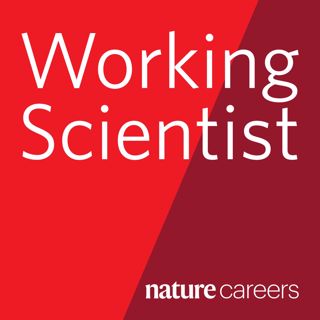
“Couldn’t cut it as a scientist.” How lab managers and technicians are smashing outdated stereotypes
Om avsnittet
Elaine Fitzcharles, a senior lab manager at the British Antarctic Survey (BAS), says the role is sometimes wrongly perceived as someone who “couldn’t cut it as a scientist.” Fitzcharles and her team oversee five BAS research stations, its main facility in Cambridge, UK, and the research vessel RRS Sir David Attenborough. Their responsibilities include advising on health and safety, import licenses, and chemicals and kit can be taken into the field. Their skillsets are completely different to researcher colleagues’, she argues in the fourth episode of a six-part Working Scientist podcast series about team science. “Recognising that everybody brings different things to the table gives you a much stronger organization, and much better science output,” Fitzcharles adds.Terri Adams, a scientific glassblower at the University of Oxford, UK, says speaking up at work helps to promote the contributions of lab managers and technicians: “It pays to ask for investment, to tell people what you can do, and to be proactive in seeking things out and publicising yourself rather than sitting back,” she says.One obvious example of recognition for lab managers and technicians is to acknowledge their contributions in publications. But Devin Lake, a lab manager and PhD student at Michigan State University in East Lansing, has mixed feelings about this. “Some lab managers don’t intend on moving forward in academia, so it doesn’t matter to them whether or not their name is added,” he says.Team Science showcases the roles of research managers, administrators and technicians, and their often hidden contributions to the scientific enterprise. Hosted on Acast. See acast.com/privacy for more information.
Senaste avsnitten

How we slashed our lab’s carbon footprint

Meet the retired scientists who collaborate with younger colleagues

A dumpster full of mercury and other things to avoid: lab closures made simple

Pension planning and psychosocial support: how institutions can help academics at the late career stage

“Who am I if not a scientist?” How to find identity and purpose in retirement

Choose your own adventure: navigating retirement after an academic career

The last few miles: how to prepare for the late-career stage in science

Counting the cost of fashion’s carbon footprint

Why female students at an inner London school are seeing scientists in a different light

